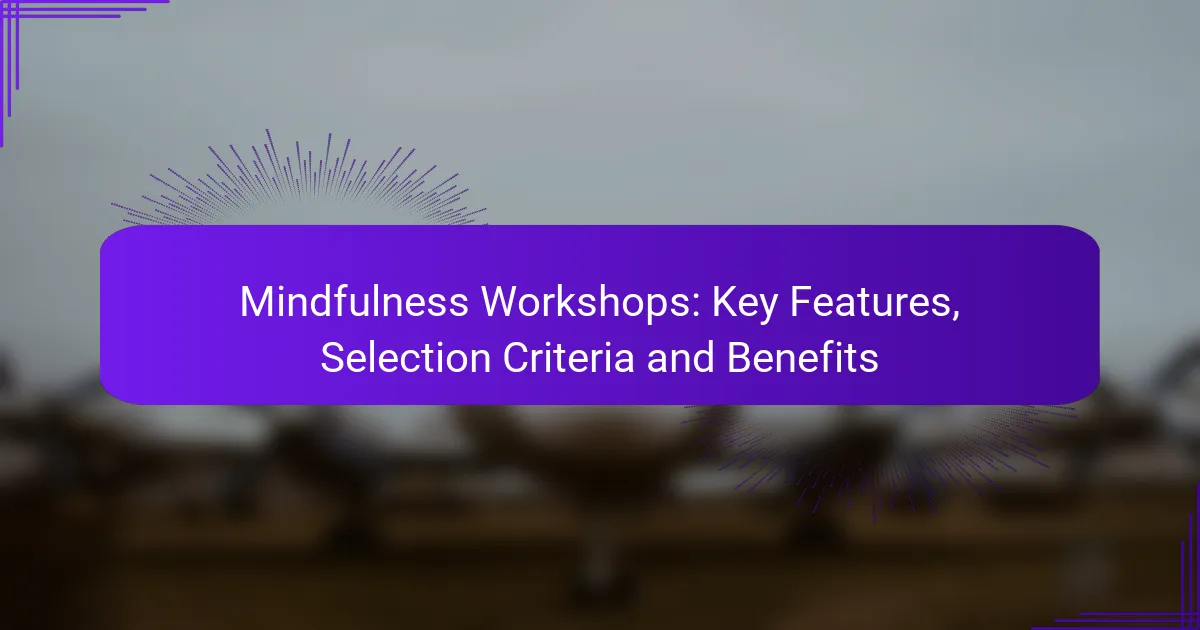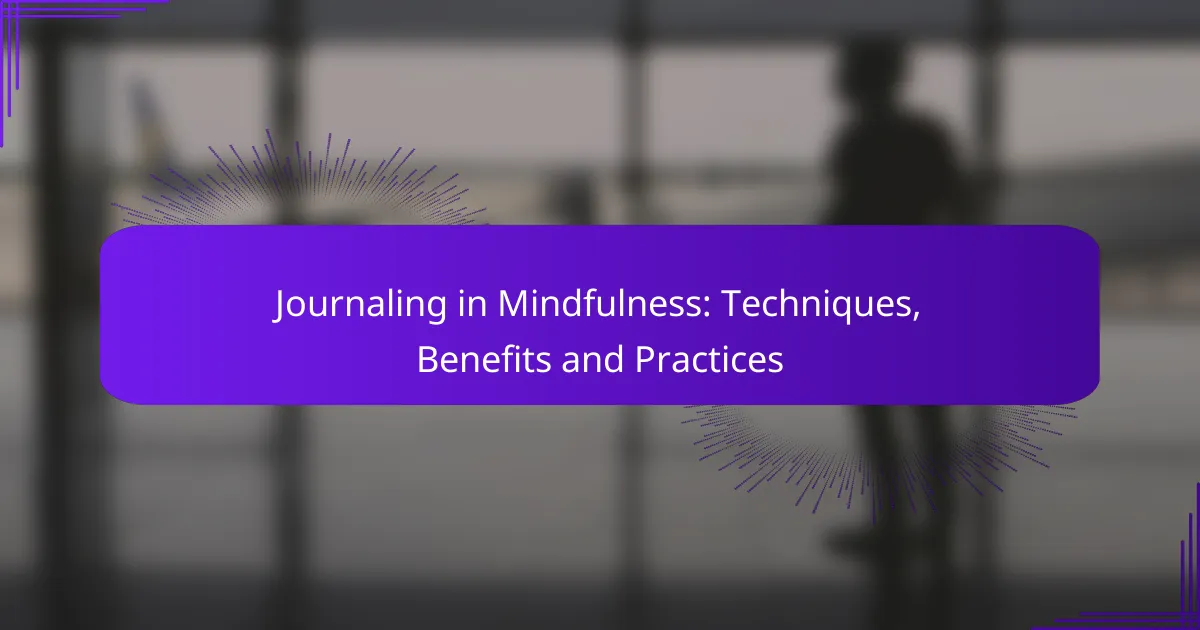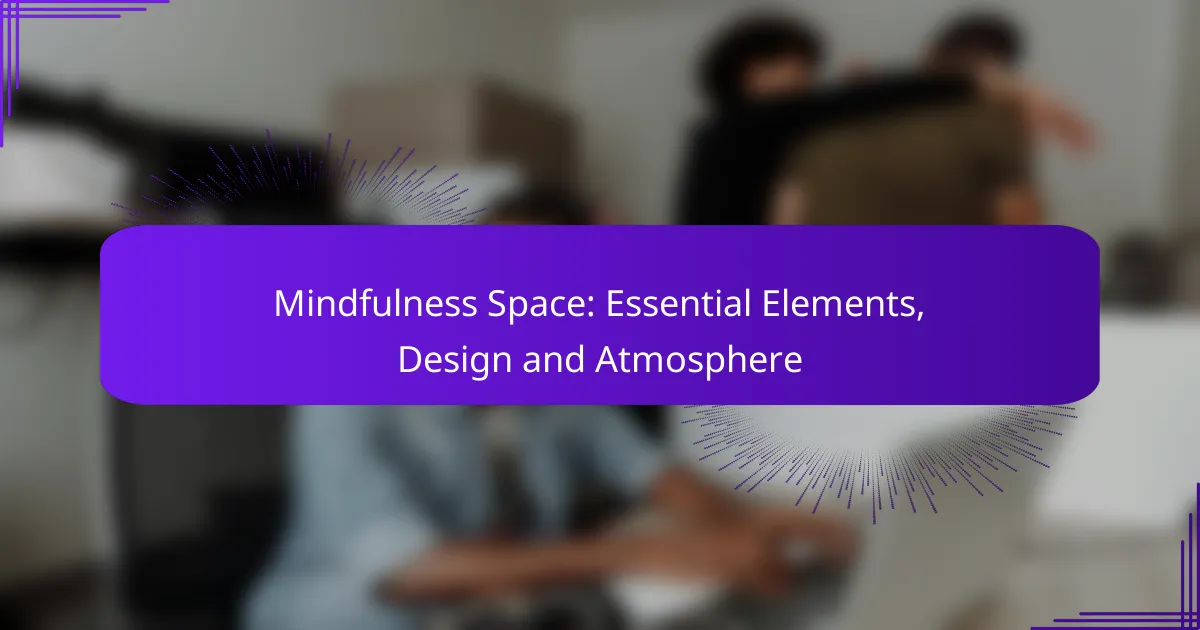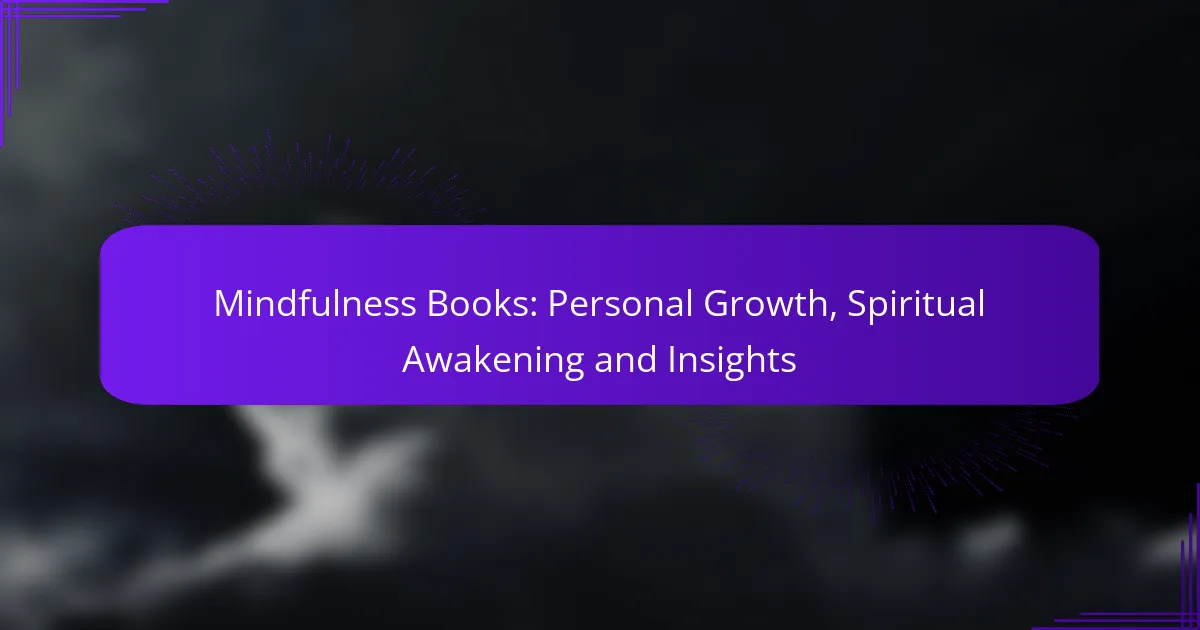Mindfulness workshops are designed to enhance self-awareness and reduce stress through a variety of interactive techniques. When selecting a workshop, it’s essential to consider the facilitator’s credentials, the format, participant feedback, and accessibility to ensure it aligns with your needs. Attending these workshops can lead to improved mental clarity, emotional resilience, and a greater sense of overall well-being.
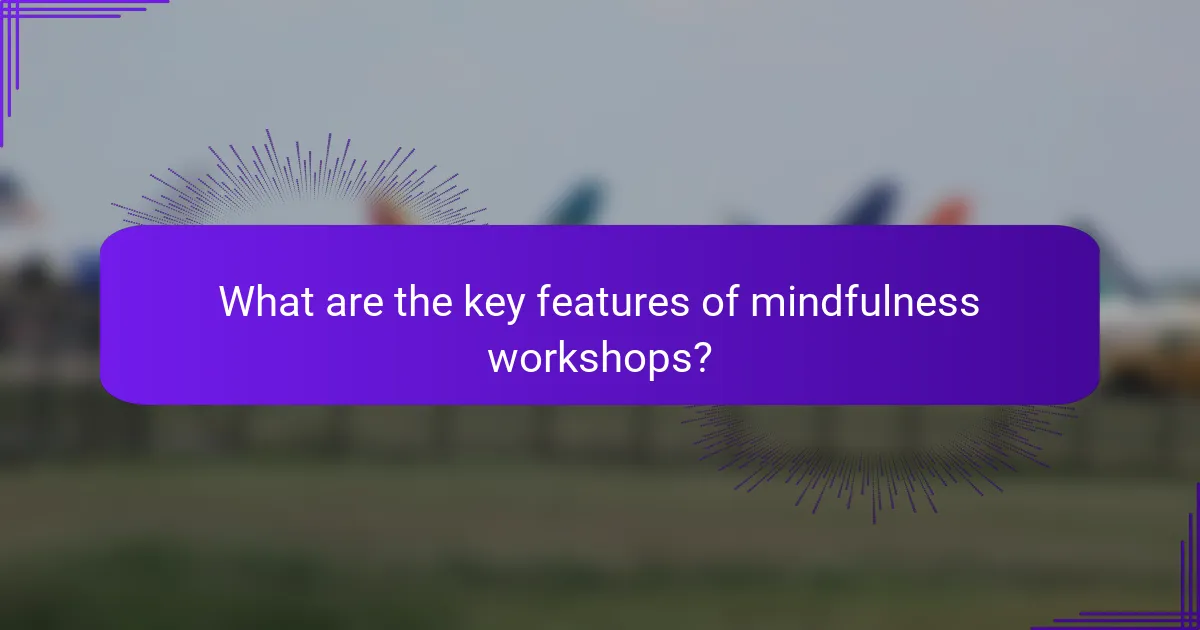
What are the key features of mindfulness workshops?
Mindfulness workshops typically focus on enhancing self-awareness and reducing stress through various techniques. Key features include interactive sessions, expert facilitators, personalized experiences, a variety of techniques, and community support.
Interactive sessions
Interactive sessions are a hallmark of mindfulness workshops, allowing participants to engage actively rather than passively absorb information. These sessions often include group discussions, guided meditations, and practical exercises that encourage participants to share their experiences and insights.
Such engagement fosters a deeper understanding of mindfulness concepts and helps build a supportive environment. Look for workshops that prioritize interaction to maximize your learning experience.
Expert facilitators
Having expert facilitators is crucial for effective mindfulness workshops. These professionals often have extensive training in mindfulness practices and psychology, which enables them to guide participants skillfully through various techniques.
When selecting a workshop, check the credentials and experience of the facilitators. Their expertise can significantly influence the quality of the workshop and the benefits you derive from it.
Personalized experiences
Personalized experiences in mindfulness workshops cater to individual needs and preferences. Many workshops offer options for tailored practices, allowing participants to focus on specific areas such as stress relief, emotional regulation, or personal growth.
Consider workshops that provide assessments or one-on-one sessions to help customize your experience. This personalization can enhance your engagement and effectiveness in practicing mindfulness.
Variety of techniques
A diverse range of techniques is essential in mindfulness workshops, as different methods resonate with different individuals. Common techniques include breath awareness, body scans, mindful movement, and loving-kindness meditation.
Workshops that incorporate various approaches allow participants to explore what works best for them. Look for programs that introduce multiple techniques to enrich your mindfulness practice.
Community support
Community support is a vital feature of mindfulness workshops, providing a sense of belonging and shared experience. Participants often form connections that extend beyond the workshop, fostering ongoing support and accountability.
Choose workshops that encourage group activities and discussions, as these can enhance your motivation and commitment to mindfulness practices. A strong community can significantly amplify the benefits of your mindfulness journey.
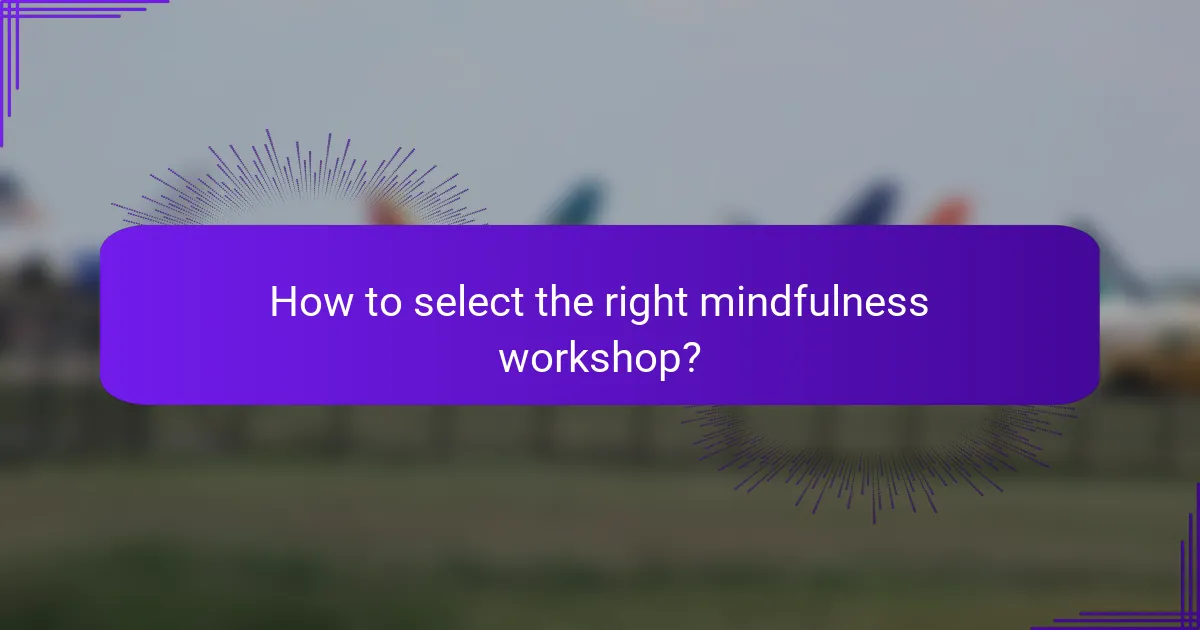
How to select the right mindfulness workshop?
Selecting the right mindfulness workshop involves evaluating the facilitator’s credentials, the format of the workshop, participant feedback, and the accessibility of the location. These factors will help ensure that the workshop meets your needs and expectations.
Assess facilitator credentials
Start by reviewing the qualifications and experience of the workshop facilitator. Look for certifications in mindfulness practices, psychology, or related fields, as well as their teaching experience. A facilitator with a strong background can enhance the learning experience significantly.
Consider checking their professional affiliations, such as membership in recognized mindfulness organizations. This can provide additional assurance of their expertise and commitment to ethical practices.
Evaluate workshop format
Mindfulness workshops can vary in format, including in-person sessions, online classes, or hybrid models. Determine which format aligns best with your learning style and schedule. In-person workshops often provide a more immersive experience, while online options offer flexibility.
Additionally, consider the duration and structure of the workshop. Some may last a few hours, while others could span several days. Assess whether the time commitment fits into your lifestyle and if the structure allows for adequate practice and reflection.
Consider participant feedback
Reading reviews and testimonials from previous participants can provide valuable insights into the workshop’s effectiveness. Look for feedback on the facilitator’s teaching style, the content covered, and the overall experience. Positive reviews can indicate a workshop that successfully meets participants’ needs.
Be cautious of workshops with limited or negative feedback. A lack of reviews may suggest a lack of experience or credibility. Aim for workshops with a strong track record of satisfied participants.
Check location accessibility
Accessibility is a crucial factor when selecting a mindfulness workshop. Ensure that the location is convenient for you, whether it’s a physical venue or an online platform. For in-person workshops, consider transportation options and parking availability.
If you have specific accessibility needs, verify that the venue can accommodate them. This might include wheelchair access, quiet spaces, or other requirements that support your participation in the workshop.
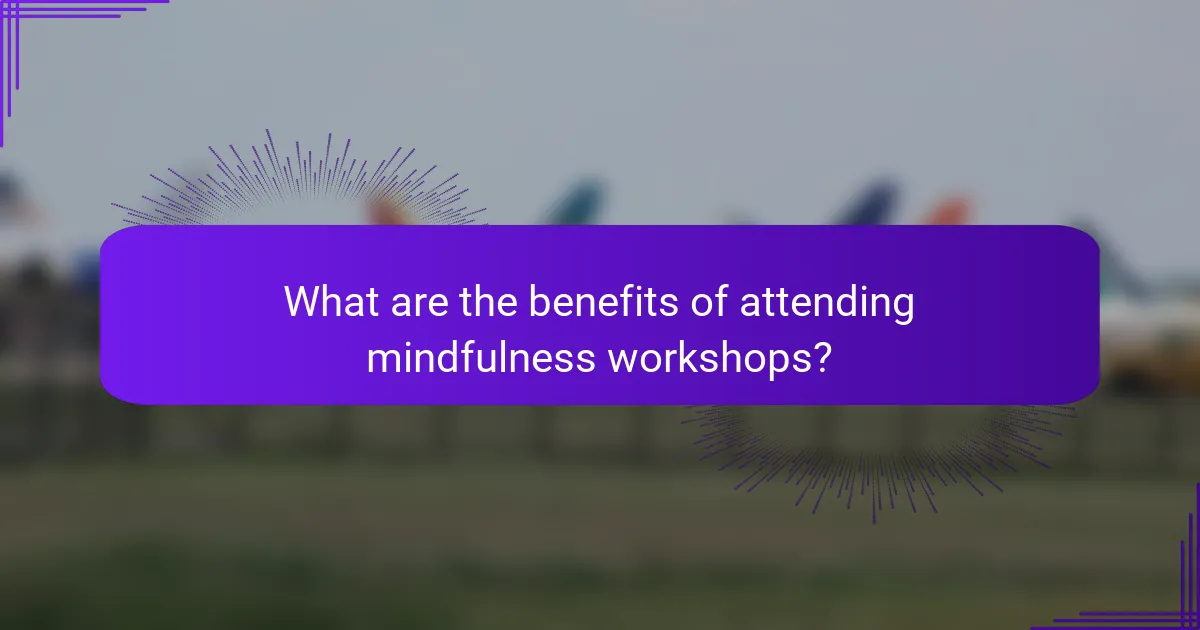
What are the benefits of attending mindfulness workshops?
Attending mindfulness workshops offers numerous benefits, including improved mental clarity, emotional resilience, and enhanced overall well-being. Participants often report greater awareness and a more balanced approach to daily challenges.
Improved mental well-being
Mindfulness workshops focus on techniques that promote mental health, such as meditation and breathing exercises. These practices can help reduce symptoms of anxiety and depression, leading to a more positive outlook on life.
By regularly engaging in mindfulness activities, individuals can cultivate a greater sense of self-awareness and emotional regulation. This can result in improved relationships and a more fulfilling life experience.
Enhanced focus and productivity
One of the key benefits of mindfulness is its ability to enhance focus and productivity. Workshops often teach participants how to stay present and fully engage with tasks, which can lead to better performance in both personal and professional settings.
Practicing mindfulness can help reduce distractions and improve concentration, making it easier to complete tasks efficiently. Techniques learned in workshops can be applied to daily routines, fostering a more productive mindset.
Stress reduction techniques
Mindfulness workshops provide effective stress reduction techniques that can be easily integrated into daily life. Participants learn methods such as guided imagery, progressive muscle relaxation, and mindful breathing to manage stress levels.
Implementing these techniques can lead to a significant decrease in stress-related symptoms, such as tension headaches and fatigue. Regular practice can help individuals develop resilience against future stressors.
Building social connections
Attending mindfulness workshops also offers opportunities to build social connections with like-minded individuals. Participants often share their experiences and support each other in their mindfulness journeys, creating a sense of community.
These social interactions can lead to lasting friendships and a supportive network, which can further enhance the benefits of mindfulness practice. Engaging with others in a workshop setting fosters collaboration and shared learning experiences.
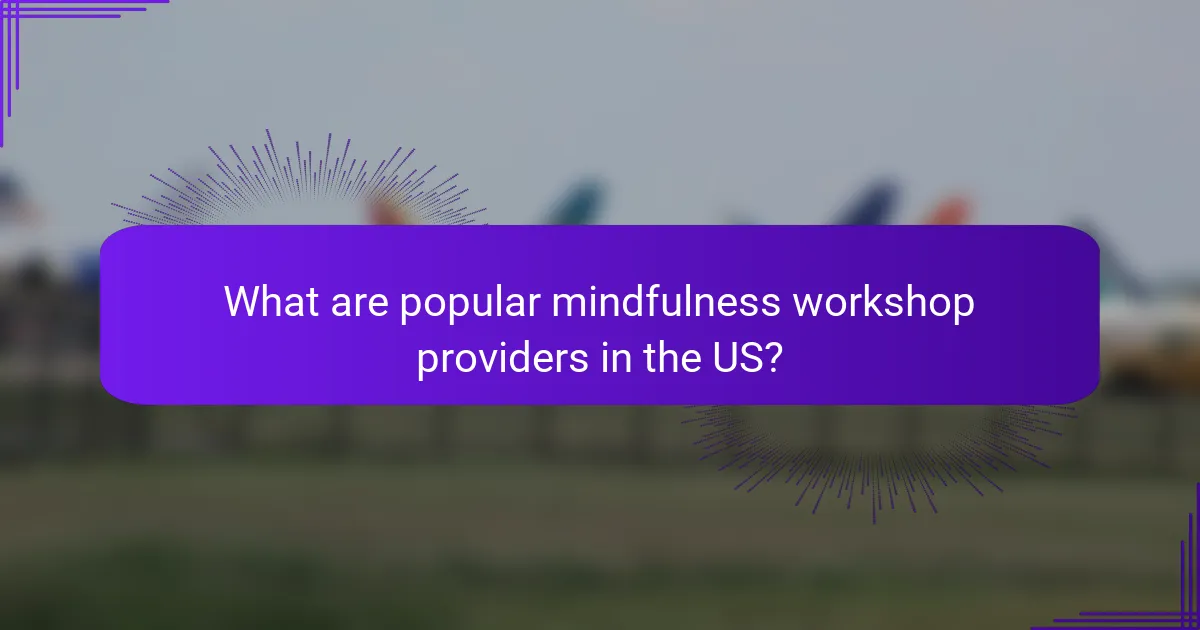
What are popular mindfulness workshop providers in the US?
Several mindfulness workshop providers in the US offer various programs tailored to different needs and audiences. These providers focus on teaching mindfulness techniques through structured courses, online sessions, and community events.
Mindful Schools
Mindful Schools specializes in mindfulness education for children and adolescents, offering programs designed for schools and families. Their curriculum includes guided practices, lessons on emotional awareness, and tools for stress reduction.
Workshops typically last several weeks and can be delivered online or in-person. They emphasize practical applications of mindfulness in daily life, making it accessible for younger audiences.
The Mindfulness Center
The Mindfulness Center provides a variety of workshops and courses for adults, focusing on stress reduction, emotional resilience, and overall well-being. Their programs often include mindfulness-based stress reduction (MBSR) techniques and are suitable for both beginners and experienced practitioners.
Workshops can range from single-day events to multi-week courses, often incorporating group discussions and personal reflection. Participants can expect a supportive environment that encourages personal growth and community connection.
Insight Timer
Insight Timer is a popular app that offers a vast library of free guided meditations and mindfulness workshops. Users can access content from various teachers and experts, making it a flexible option for those looking to practice mindfulness on their own schedule.
The platform includes features such as community groups, live events, and courses that cater to different levels of experience. This accessibility allows users to explore mindfulness at their own pace, whether at home or on the go.
